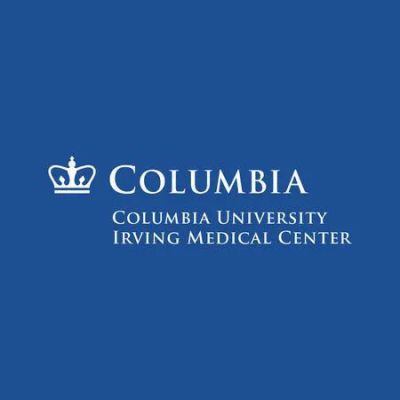The Impact of High Cholesterol on Your Heart
When it comes to heart health, cholesterol plays a crucial role. While cholesterol itself is a necessary component for the body, having too much of it in the blood can have significant negative effects on your cardiovascular health. In this article, we'll delve into the impact of high cholesterol on the heart, explain how it can lead to serious conditions, and offer tips on how to manage cholesterol levels effectively.

1. Understanding Cholesterol and Its Role in the Body
Cholesterol is a type of fat that is found in your blood. It is essential for building healthy cells, producing certain hormones, and helping with the digestion of food. There are two main types of cholesterol: low-density lipoprotein (LDL) and high-density lipoprotein (HDL). LDL is often referred to as "bad" cholesterol, while HDL is known as "good" cholesterol. The balance between these two types is critical for maintaining a healthy heart.
When LDL cholesterol levels become too high, it can lead to the buildup of plaque in the arteries, making it difficult for blood to flow freely. This condition is known as atherosclerosis, which is a key risk factor for heart disease. In contrast, HDL cholesterol helps remove excess cholesterol from the bloodstream, preventing plaque formation and protecting the heart.
Cardiac Solutions
cardiac solutions
5651 W Talavi Blvd, Glendale, AZ 85306, USA

2. How High Cholesterol Affects Heart Health
Excess cholesterol can have serious consequences for the heart. When plaque accumulates in the arteries, it narrows and hardens the blood vessels, limiting blood flow to the heart. Over time, this can lead to various heart-related issues, including:
- Coronary Artery Disease (CAD): CAD occurs when the coronary arteries become blocked or narrowed due to plaque buildup, preventing oxygen-rich blood from reaching the heart. This can lead to chest pain (angina) or even a heart attack.
- Heart Attack: A heart attack occurs when a blocked artery prevents blood from reaching a part of the heart, causing damage or death to the heart muscle. High cholesterol is one of the major risk factors for heart attacks.
- Stroke: High cholesterol can also increase the risk of stroke by contributing to the buildup of plaque in the arteries that supply blood to the brain.
- Peripheral Artery Disease (PAD): PAD occurs when narrowed arteries reduce blood flow to the limbs, leading to pain and potential tissue damage.
3. Recognizing the Symptoms of High Cholesterol
One of the challenges with high cholesterol is that it often doesn't present any noticeable symptoms until it has caused significant damage to the arteries and heart. However, if you are at risk for high cholesterol, it's important to get regular cholesterol screenings. Key risk factors for high cholesterol include:
- Age (men over 45 and women over 55 are at higher risk)
- A family history of heart disease
- Unhealthy diet (high in saturated fats and trans fats)
- Lack of physical activity
- Smoking
- Obesity or being overweight
4. Managing High Cholesterol: Tips for a Healthy Heart
Managing your cholesterol levels is essential for maintaining a healthy heart. Here are several steps you can take to help control your cholesterol and reduce your risk of heart disease:
1. Eat a Heart-Healthy Diet
Eating foods that are low in saturated fats and trans fats is key to controlling cholesterol levels. Focus on a diet rich in fruits, vegetables, whole grains, and lean proteins. Include sources of healthy fats, such as those found in avocados, nuts, seeds, and fatty fish like salmon and mackerel.
2. Exercise Regularly
Physical activity helps raise HDL (good) cholesterol levels while lowering LDL (bad) cholesterol. Aim for at least 30 minutes of moderate-intensity exercise most days of the week. Activities like walking, cycling, swimming, or yoga can help improve your overall heart health.
3. Maintain a Healthy Weight
Being overweight can contribute to higher levels of LDL cholesterol. Losing even a small amount of weight can help lower cholesterol levels and reduce your risk of heart disease. Focus on a balanced diet and regular exercise to achieve and maintain a healthy weight.
4. Quit Smoking
Smoking damages blood vessels and lowers HDL (good) cholesterol levels. Quitting smoking can help improve your cholesterol levels and reduce your risk of heart disease and stroke.
5. Limit Alcohol Consumption
Excessive alcohol consumption can raise triglyceride levels and lead to higher cholesterol levels. If you choose to drink alcohol, do so in moderation—no more than one drink per day for women and two drinks per day for men.
6. Medications
In some cases, lifestyle changes may not be enough to control high cholesterol. If this is the case, your healthcare provider may prescribe medications, such as statins, to help lower LDL cholesterol and reduce your risk of heart disease.
5. The Importance of Regular Check-ups
Regular cholesterol screenings are essential for monitoring your heart health. Your healthcare provider can help determine whether your cholesterol levels are within a healthy range and suggest appropriate interventions. Early detection and management of high cholesterol can significantly reduce your risk of heart disease and other cardiovascular problems.
If you're looking for the right products and services to support your heart health, be sure to check out HeartCare Hub for expert recommendations and heart-healthy solutions.





















Deborah Heart and Lung Center
deborah heart and lung center
200 Trenton Rd, Browns Mills, NJ 08015, USA